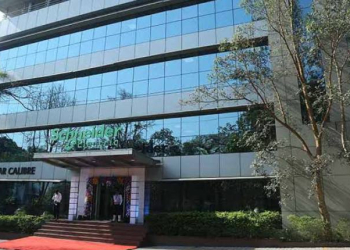New Delhi: The already high prices for edible oil since the Ukraine-Russia war broke out will get an added fuel as Indonesia — world’s largest producer and supplier of palm oil — has announced a ban on its export from April 28.
India imports roughly 80 lakh tonnes of palm oil from Indonesia, Malaysia and Thailand annually. Of the approximate six lakh tonnes per month import, almost three lakh tonnes come from Indonesia, according to Solvent Extractors’ Association (SEA).
Although the export ban will be effective five days later, it has already created a buzz in the Indian market with traders wary of the impending shortfall and price hike. “This (decision) has come as a fuel in the fire. We already had a worrying situation due to the Ukraine-Russia war and now this. The gap is too wide to bridge,” said Solvent Extractors’ Association (SEA) executive director B.V. Mehta.
Stating that Indonesia already has half a million tonnes storage with four lakh tonnes coming in each month, Mehta said: “It will be hard for them (Indonesia) to continue this for long. I am sure they will open up soon.”
Echoed Suresh Nagpal, chairperson of the Central Organisation for Oil Industry & Trade (COOIT): “Indonesia supplies almost 60-70 per cent of the world’s palm oil. There is some supply chain disruption in their country and hence this is a panic decision by that government. I am sure; they would reverse the decision in about 10-15 days.”
Even when there is no trade on the commodities exchange over the weekend, the palm oil prices have already shown an increase of Rs 3,000-5,000.
“The market opening on Monday morning will show the real impact. We have also requested the government of India to initiate G-to-G talks with Indonesia,” Mehta said.
It was not immediately clear what are the steps that the government has planned. Phone calls and text messages to Food Secretary Sudhanshu Pandey went unanswered.
Earlier, to prevent the edible prices soaring high — and incidentally days before the Russia-Ukraine war broke out — the government had reduced the agri-cess for Crude Palm Oil (CPO) from 7.5 per cent to 5 per cent with effect from February 12, 2022.
After reduction of the agri-cess, the import tax gap between CPO and Refined Palm Oil has increased to 8.25 per cent. The increase in the gap between the CPO and Refined Palm Oil will benefit the domestic refining industry to import Crude Oil for refining.
Another pre-emptive step was to extend the then current basic rate of import duty of zero percent on Crude Palm Oil, Crude Soybean oil and Crude Sunflower Oil up to September 30, 2022.
The government has also imposed a stock limit in February, which was first extended till March end, June end and now till September end in order to prevent hoarding and black marketing of edible oils.
(IANS)


















